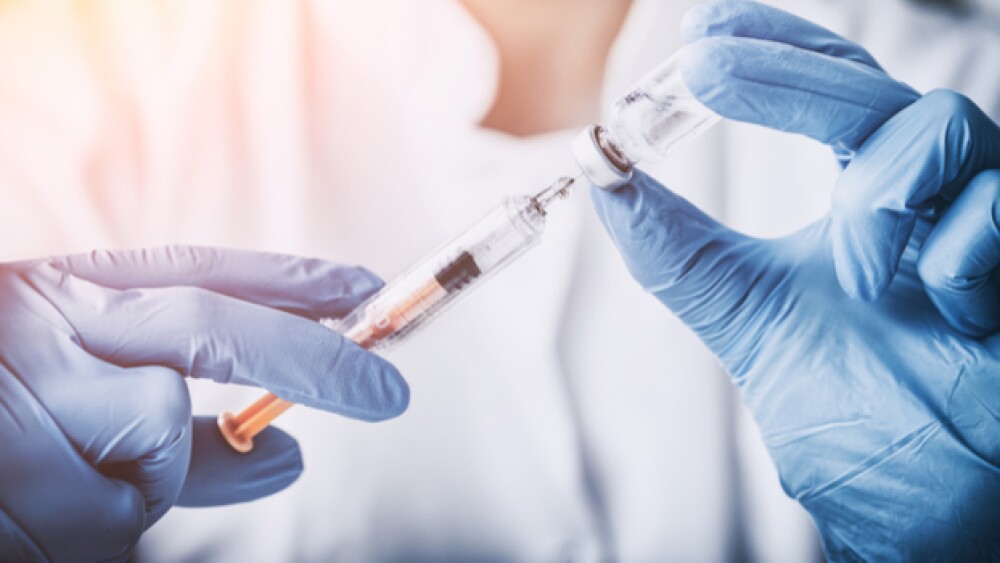LineaRx, a subsidiary of Applied DNA Sciences, has entered into a Joint Development Agreement with Takis SRL and Evvivax SLR. They will focus on developing anti-cancer vaccines.
LineaRx, a subsidiary of Applied DNA Sciences, has entered into a Joint Development Agreement with Takis SRL and Evvivax SLR. They will focus on developing anti-cancer vaccines.
Under the terms of the deal, LineaRx and Takis and Evvivax will work together to develop linear DNA expression vectors of two of Takis/Evvivax’s anti-cancer vaccine candidates. They will use LineaRx’s linear DNA technology.
The companies have a previous collaboration in place, launched in November 2017, which they say has shown promise in mouse models. Takis SRL is based in Rome, Italy. Its focus is on developing therapeutic cancer vaccines. EvviVax is also based in Rome, and focuses on engineered veterinary vectored immunotherapy and vaccines. It is a spin-off of Takis.
“We are excited to co-develop linear DNA expression vectors for our DNA vaccine candidates with LineaRx,” stated Luigi Aurisicchio, chief executive officer of Takis/Evvivax. “The advantages of linear DNA over plasmids would provide a clear market edge over plasmid-based DNA sources. We look forward to a mutually beneficial collaboration.”
LineaRx was only formed on September 18. Applied DNA Sciences is a leader in large-scale PCR-based DNA manufacturing. LineaRx was formed to commercialize Applied DNA Sciences’ “experience in the design, manufacture and chemical modification of DNA by large-scale polymerase chain reaction in the field of biotherapeutics.”
Linear DNA is what comes out of PCR, which is distinct from plasmids grown in bacteria—plasmids are circular. LinearRx will focus on gene therapy, immuno-oncology and DNA vaccines. Most gene therapies are based on plasmids, but they are also associated with the genes for antibiotic resistance, which can cause problems in gene therapy.
“We believe the launch of LineaRx will unlock significant value to the benefit of Applied DNA shareholders and to the world of healthcare,” said James Hayward, president and chief executive officer of Applied DNA, in a statement. “Our proprietary and patented approach to linear DNA manufacturing holds the promise to deliver more efficient, affordable and safer genetic therapeutics to a broad patient population.”
In explaining how LineaRx and Applied DNA differs, and why they split off LineaRx, Hayward said, “Unlike Applied DNA’s taggant business, in which the DNA is short and nonfunctional by design, LineaRx DNA sequences are long (gene-sized) and contain the control elements that allow their expression in cells after specialized delivery to the cells. The segregation between the divisions enables the companies to differentiate their product portfolios, business units, operations and regulatory affairs.”
Applied DNA is licensing multiple patents related to therapeutic applications to LineaRx. They include the rights to manufacture DNA via PCR using Applied DNA’s patented systems under cGMP conditions and the capacity for remote control. This potentially can allow for rapid manufacturing in a distributed network on the battlefield or in hospitals that use gene therapies like CRISPR or cellular therapies like CAR-T.
As part of the spinoff, LineaRx takes on Applied DNA’s Contract Research Organization (CRO) and Contract Manufacturing Organization (CMO) activities to the biotherapeutics market. “By segregating our markets, and differentiating our sales teams, we expect to be able to better focus our selling efforts,” Hayward stated. “LineaRx will provide prospective customers and development partners access to a unique portfolio of patented and proprietary linear DNA technologies designed to effectively optimize delivery, improve targeting, and extend expression of gene therapy products.”





